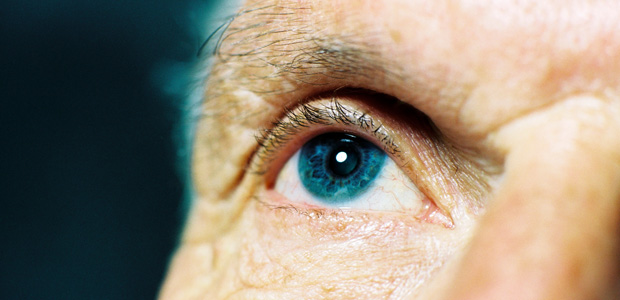Advertisement
Glaucoma
Glaucoma is the second leading cause of vision loss in the world. Nearly 67 million people will be diagnosed with it this year. Optometrist Glen Swartwout of Hawaii reports that the long standing belief that once vision is impaired it can only be restored through drugs or surgery is not only untrue, but may even … Continued

Glaucoma is the second leading cause of vision loss in the world. Nearly 67 million people will be diagnosed with it this year.
Optometrist Glen Swartwout of Hawaii reports that the long standing belief that once vision is impaired it can only be restored through drugs or surgery is not only untrue, but may even contribute to further visual impairment. It is widely believed that diet and nutrition play a central role in the proper function of the eyes.
Glaucoma is not an entity independent of your body, mind and soul. The condition is a symptom of something deeper, a communication to which you should attend. Perhaps you are under too much pressure and living too fast. A good beginning may be to change your attitude about your eye condition. The glaucoma might be a response to a needed change in direction.
Consider the wondrous nature of our eyes and body. You can break a bone, cut yourself, pull a tendon, hurt a muscle and your body regenerates. Why should your eyes be any different? There is no medical reason why your eye function cannot improve. It is a matter of making the decision to believe–and then applying the new information.
This approach will help you control glaucoma through nutritional and life-style changes and protect your optic nerve from further damage.
A Vision Diet
Eye wellness begins with conscious breathing. Healthy, oxygenated blood travels from the heart through the neck into the brain and down through the optic nerve to the eyes. Optometrist Marc Grossman cites studies where patients can reduce their eye pressure by five to seven millimetres with an improved diet and supplement program.
In general, a diet high in beta carotene, vitamins C and E and sulfur-bearing amino acids is recommended. Foods containing those nutrients include garlic, onions, beans, spinach, celery, turnips, yellow and orange vegetables, green leafy vegetables, seaweed, apples, oranges and tomatoes.
Drink eight to 10 glasses of purified water instead of carbonated drinks–soda pop, soft drinks and alcohol can dehydrate the eyes. Exercise daily for at least 20 minutes. Avoid foods to which you are allergic. Dr Grossman refers to a study of 113 patients with chronic simple glaucoma who showed immediate inner eye pressure increases of up to 20 millimetres when they were exposed to foods to which they were allergic.
Coffee should be reduced or eliminated. Studies have shown that coffee can produce a 13 percent reduction in retinal blood flow. And if you smoke, please do everything possible to stop.
Use a sublingual spray with lutein, zeaxanthin, bilberry, vinpocetine and vitamin E. Lutein and zeaxanthin filter light and serve as potent free-radical scavengers for the retina. Bilberry improves circulation in the blood vessels of the eye, helps maintain the integrity of capillaries, stabilizes collagen and stimulates the production of rhodopsin, essential for night vision. Vinpocetine improves the use of glucose and oxygen in the brain and retina and is found in periwinkle seed.
Consider supplementing your food with alpha lipoic acid, magnesium, omega-3, thiamine, vitamin B12 and vitamin C. These nutrients have all been shown to have a positive effect in glaucoma.
Spend 20 to 60 minutes outdoors each day prior to 10 am or after 4 pm without wearing spectacles or sunglasses. With your eyes closed, aim your head and eyes toward the sun. Feel the warmth and visualize your eyes and brain in a state of readiness to receive the healing light.
Cover your eyes with ultraviolet-absorbing lenses endorsed by an optometrist, especially between the hours of 11 am and 3 pm, even on a cloudy day. At the beach, water can reflect up to 25 percent of ultraviolet rays.
With patience, you will begin to live these new habits and learn how to look with “new” eyes at your world.
New research points out that a lack of oxygen and low blood flow can cause glaucoma. According to the medical model, glaucoma is caused by fluid-pressure buildup in the eye that results in damage to the optic nerve and vision loss.
This new “garbage dump” theory proposes that the mitochondria in the cells in the back of the eye die from oxygen starvation, sodium poisoning and waste accumulation. Red blood cells clump together and can’t fit through tiny blood vessels to deliver oxygen to the mitochondria, which then die. The cells then die of starvation and suffocation, so the tissues in the back of the eye atrophy. The result, of course, is vision loss.
Detoxifying the body can help prevent your cells from suffocating and starving. Pure water and fresh organic food can help you to keep seeing the beauty in the world.




